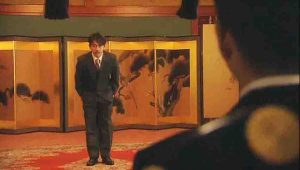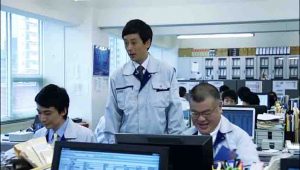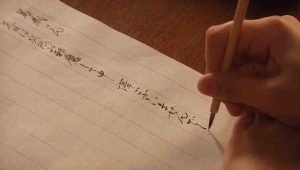Keigo – Linguistic elements
How you can express Keigo – linguistic elements
-
Select words to show respect
- Indirectness is more important than directness. Rather than call somebody by his/her first/surname, the words that are associated with remoteness are often chosen. For example, the word ‘anata(あなた)’, which originally meant ‘a place far away’, was employed to show speaker’s respect to others.
- In responding to questions, we tend to choose the more formal ‘Yes’ rather than the informal/colloquial ‘Yeah’ in English.
- The use of slang-like vocabulary is carefully avoided on some occasions.

-
Respect vs humble, wishful statements rather than imperative
- Japanese sometimes refer to books/letters/arguments, with terms that embody respect, which were written by their superiors. Equally they deliberately belittle themselves to show their humbleness in the presence of supposedly influential persons.
- Wishful statements rather than imperative statements are often employed to convey one’s hope.
-
Sensitive to situations
- Some of the words that are freely used in ordinary conversation should be avoided
in certain situations because these sound very rude.
For example,
Suppose you invited a Japanese mentor for a drink. He/she asked what time it was,
then you would never say “Moo 11-ji han de gozaimasu!(もう、11時半でございます。)”, which literally means ” It is already 11.30pm”. The word “Moo(もう)” could imply that you wished he would leave. It should be just “11-ji han de gozaimasu.(11時半で ございます。)”. - In communicating, Japanese carefully choose the topics that please their superiors.
When the former American president Mr Clinton visited Japan and was invited on
to a live TV show, one of the middle-aged women started asking questions about Monica Lewinsky.
However, she was immediately asked to stop questioning
Mr Clinton because traditional Japanese people would perceive this as rude
- Some of the words that are freely used in ordinary conversation should be avoided
-
Tone of your voice
- You enunciate words/phrases distinctly rather than roughly.
In English, “we’re gonna visit Mr Smith tomorrow” is less polite than
“We are going to visit Mr Smith tomorrow”. The same applies to Japanese.
“Watakushi(わたくし=私)” is better than “watashi(わたし)’ or “washi(わし)”.
Also when you introduce yourself it should be “Peter Smith de gozaimasu.(ピーター・スミスで ございます。)”
Rather than “Peter Smith de zaimasu.(ピーター・スミスでざあます。)” - Polite expressions usually have a non-rising tone at the end.
Ending a statement in a rising tone should be avoided as this might be interpreted as an interrogative. - At the beginning/end of a speech, your name should be pronounced in rather a modest way.
Admittedly this is not as common as it used to be. -
Letter writing
- Letters should be written ideally with a calligraphy brush in kaisho (print-style)
rather than with a ball-point pen. The name(s) of any superior(s) is written
in a larger font and yours in a smaller font. Additionally,
your name should be physically positioned below the name(s) of these superior(s). - Some Japanese learning students call their friends/teacher(s) “Anata”,
which is very rude as this literally means “thing(s) over there”. When
Japan was introduced to English, we did not have the equivalent to the
English word “you”. Somehow we decided to use “Anata” . Japanese
people still employ this word. In particular when married couple start
arguing over trivial matters, they decided to call their spouse “Anata”.
In short, “Anata” bings in a phycological gap between two people,
terefore their mood changes into “disrespect”.But if you would like to choose to be “rude, disrespectful”, then “Anata”
is totally fine.
I didn’t know this! Oh no I have been very rude to people… So if I want
to say ‘you’ I use the person’s name or their title (‘sensei’)?


Anata – you!
What is Keigo?
How Keigo was born
Keigo – Non Linguistic elements.
Handing out and receiving business cards
